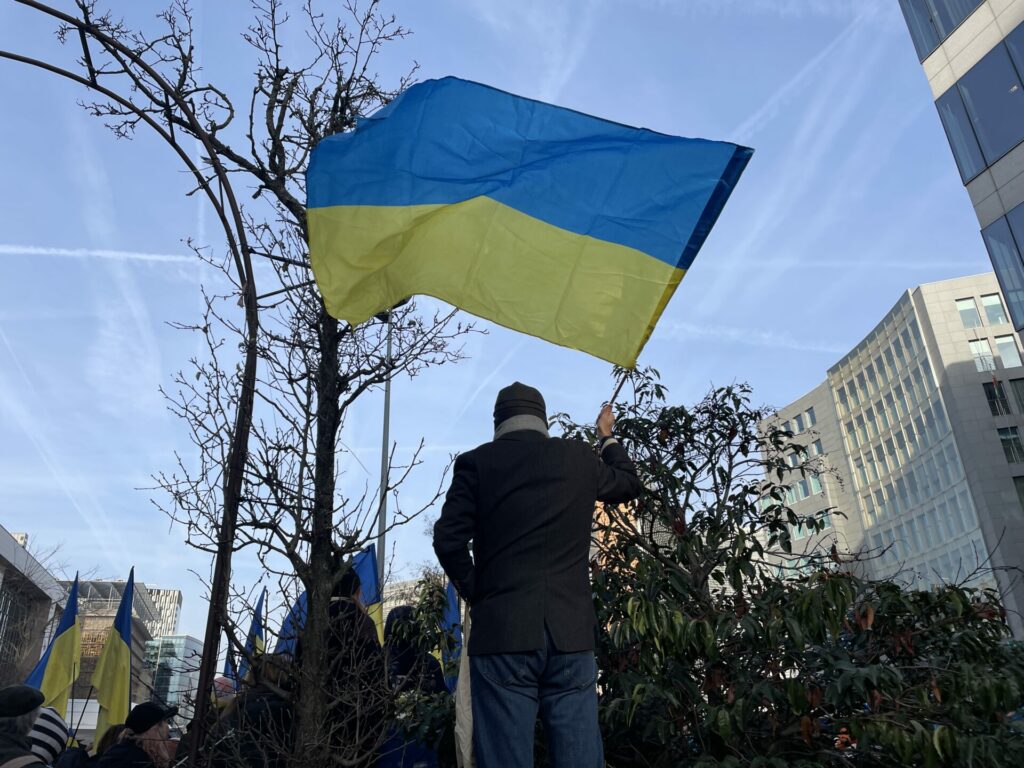On the one-year anniversary of Russia's invasion of Ukraine, the European Union's 27 member states agreed on a tenth sanctions package against Russia after last-minute haggling and delays.
Friday 24 February marked one year since Russia invaded Ukraine. In an immediate response to the conflict, the EU announced several sanctions packages against the county, the latest being the tenth, which will include additional trade restrictions, the Swedish EU presidency said late on Friday.
"It’s one year since Russia’s brutal and illegal invasion of Ukraine. Today, the EU approved the 10th package of Russian sanctions," the presidency wrote on Twitter.
"Together, the EU Member States have imposed the most forceful and far-reaching sanctions ever to help Ukraine win the war. The EU stands united with Ukraine and the Ukrainian people. We will keep supporting Ukraine, for as long as it takes," it added.
The 27 countries agreed on the tenth package, which European Commission president Ursula von der Leyen says is worth over €11 billion.
The sanctions included "targeted restricted measures against individuals and entities supporting the war, spreading propaganda or delivering drones used by Russia in the war."
The list also includes export bans from the EU on components or goods that could contribute to Russian warfare, such as certain electronics components. Also listed are Iranian companies that make and/or sell drones to Russia and cause much misery in Ukraine. Putin's propagandists are also targeted.
Delayed negotiations
The negotiations took longer than planned, mainly because Poland was initially not satisfied with the punitive measures proposed by the Commission, stressing that more confidants and relatives of Russian President Vladimir Putin needed to be hit with punitive measures.
On the other end of the debate, Hungary wanted to remove names from the existing sanctions list, EU sources told Belga News Agency. There was also disagreement over exemptions for imports of Russian synthetic rubber, which is used, for example, for car tyres. According to Poland, the proposed exemptions were so large as to make the sanctions ineffective.
So far, the EU has imposed "unprecedented sanctions" against Russia in response to the "unprovoked and unjustified invasion" of Ukraine and the "illegal annexation" of Ukraine's Donetsk, Luhansk, Zaporizhzhia and Kherson regions, it stated.
The sanctions include economic sanctions to "impose severe consequences on Russia for its actions and to effectively thwart Russian abilities to continue the aggression," and individual sanctions targeting people "responsible for supporting, financing or implementing actions which undermine the territorial integrity, sovereignty and independence of Ukraine or who benefit from these actions."
Not going far enough
NGO Greenpeace, however, has criticised the EU, stating that Rosatom, which oversees Russia’s nuclear weapons programme, and its leading employees have escaped the EU’s list of sanctions despite Ukrainian president Volodymyr Zelenskyy having repeatedly called for the EU to sanction Russian nuclear industry.
“Politicians like Macron love to fly the Ukrainian flag and pose for photos with Zelenskyy, but then look the other way when Ukraine asks them to cut the European nuclear industry's ties to the Kremlin," Greenpeace EU sustainable finance campaigner Ariadna Rodrigo said.
"At a time when so much effort is going into supporting Ukraine, why is the nuclear industry left free to funnel money into Putin’s war chest?”
Related News
- 'Russia is cut away from the world': Von der Leyen highlights Russia's isolation
- 'We will never abandon you': Belgium reaffirms support for Ukraine
According to Greenpeace, the Commission ruled its inclusion out after resistance from several EU governments with domestic nuclear industries, most notably Hungary, which is dependent on Rosatom to build its new Paks II plant. However, other countries, including France, have also opposed the sanctions in the past.
The EU has also adopted sanctions against Belarus for its involvement in the invasion and Iran, in relation to the use of Iranian drones in the Russian aggression against Ukraine.

